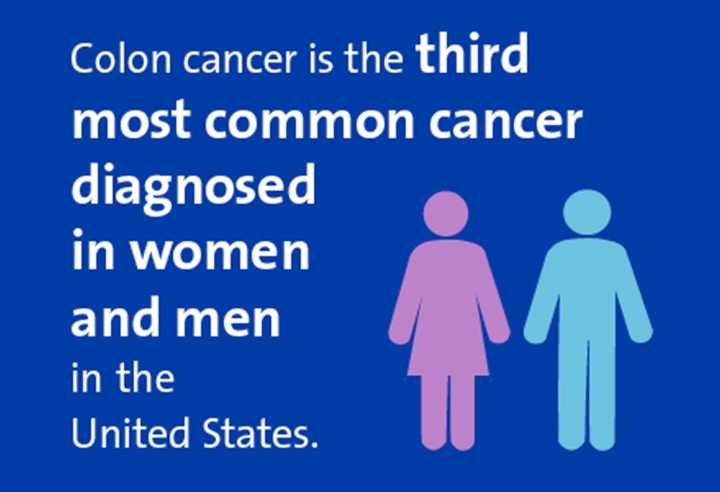Colorectal cancer is currently the second leading cause of cancer deaths in the United States. Both the incidence and mortality rates of colorectal cancer have been slowly declining in the United States, mainly due to aggressive screening strategies. Still, approximately 145,600 new cases of colorectal cancer are diagnosed in the United States annually, with over 50,000 Americans dying of the disease yearly. Cancers of the colon and rectum are highly preventable if we take the right steps in screening and are aware of certain alarm signs or symptoms.
Lifestyle Factors That Can Lead to Increased Risk of Colorectal Cancer:
• Diet and obesity - We now have ample evidence showing that obesity increases the risk of developing cancer of the colon and rectum, specifically weight gain in early adulthood and midlife. This likely relates to a similar process linking diabetes and insulin resistance to increased rates of cancer. We do not know the whole story yet; however, it is hypothesized that the increased insulin present in patients with diabetes and obesity can stimulate tumor cells to grow.
• Eating red and processed meats - Many people are aware of the associated risks of eating red meats with heart disease, however the increased risk of colorectal cancer is rarely discussed. Processed meats include bacon, ham, sausages, corned beef, beef jerky, and other smoked, salted, fermented or cured meats, including many deli meats. That constitutes quite a long list of commonly eaten meats! Data is not entirely consistent, however long-term consumption of red and processed meats appears to increase the risk of colorectal cancer. In 2015, the World Health Organization chose to label red and processed meats as a group 1 carcinogen, lumping this into the same category as cigarettes and asbestos. We can all benefit from decreasing the amount of red and processed meats we eat.
• Cigarette smoking - Any tobacco use increases the risk of multiple cancers – colorectal cancer included.
• Alcohol consumption - Alcohol consumption is slightly more nuanced. Moderate and heavy drinkers – those consuming more than at least two drinks a day – have been shown to have slightly increased risk of colorectal cancer. Light drinkers (less than one drink per day) do not appear to carry this risk.
Prevention Strategy:
Lastly, and most importantly, appropriate screening is the main strategy for prevention. We have definitively shown that performing screenings starting at age 50 has led to a significant decline in cancer in those ages 55 and older. Colonoscopy is the most widely discussed test available, however additional tests include stool tests and CT scans of the colon. Any screening test is ultimately better than no test at all. Certain patients may need earlier screening based on family history, hereditary risk or the presence of other diseases, such as inflammatory bowel disease. Patients younger than age 50 who are experiencing rectal bleeding, a significant change in their bowel habits or unexplained weight loss may also be appropriate for early screening. If you have any questions regarding colorectal cancer and potential screening strategies, please contact the Phelps gastroenterology department at 914-366-5420 or visit our website at phelpshospital.org/digestive-health for more information.
